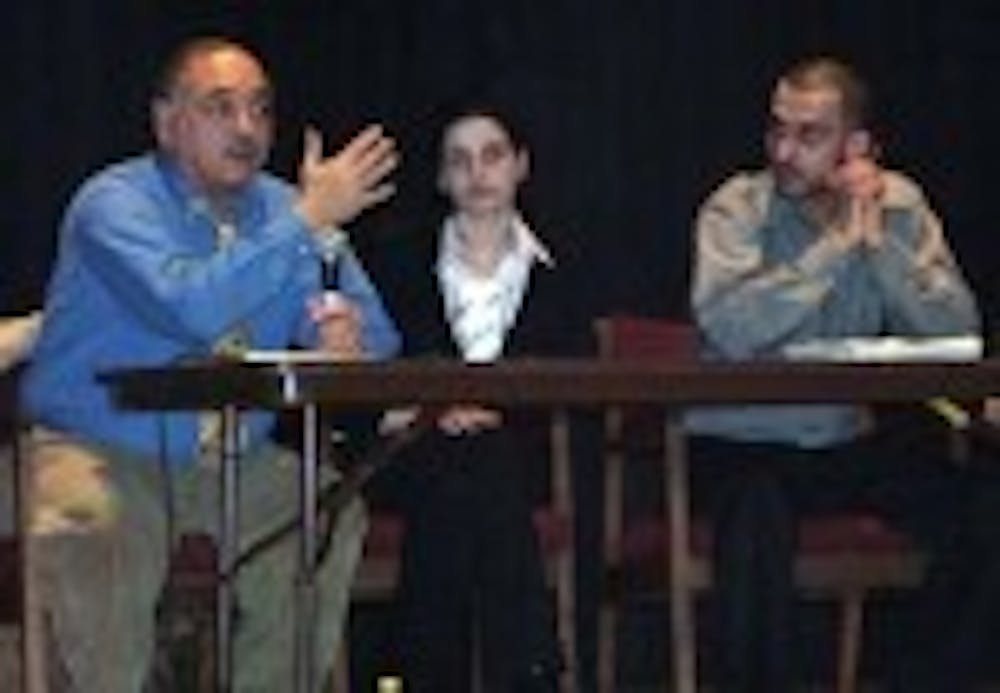A Muslim UB student detained multiple times by the U.S. government and an immigration lawyer shared their experiences Thursday night at a lecture in the Student Union Theater.
The event, sponsored by the Muslim Student Association and the Organization of Arab Students, was meant to raise awareness about civil rights issues facing Muslim Americans today.
The forum, titled "Is it Justice, or is it Just Us?" focused on the unsettled immigration affairs of Helmi Agha, a first year non-matriculated business major. Michael Berger, an immigration lawyer also spoke, addressing the legality of recent events at the border.
Agha recounted his history with the U.S. government, which began when he was convicted of armed robbery in 1996. The conviction, however, was made under perjured testimony that was later recanted by the alleged victim, according to Agha.
"Because of one man's lie I have suffered for 11 years," Agha said. "There is no justice."
More recently, Agha was put under house arrest, and had been detained multiple times by both the Department of Immigration and the Department of Homeland Security.
After Agha, who felt his status as a Muslim influenced his interaction with the government spoke, Berger addressed legal issues regarding border crossings. At all border crossings, Berger said, there is a suspension of rights.
"Very simply, there are no constitutional rights at the border for anyone," Berger said.
Berger said while officials at the border can detain you, it should be done only when there is a justifiable reason.
"The only time one should be detained after presenting valid proof of citizenship is when there is suspicion of a threat posed by the person," Berger said.
Audience member Sawsan Tabbaa, an instructor of orthodontics at UB who was detained at the Canadian border in December, asked Berger about the legality of photographing and fingerprinting border crossers.
Those practices, Berger said, were legal.
"Border officials can fingerprint and photograph whomever they want at the border, but should do so only when there is a credible belief that they are a criminal or a terrorist," he said.
The lecture took a politically charged turn when Berger explained the historic political role of immigration within the United States.
"Immigration services is a political tool to keep certain groups out," Berger said. "One hundred and fifty years ago it was the Irish, then the Italians, then Eastern Europeans and now Muslims and people of Middle Eastern descent."
According to Berger, the politics of immigration has many problems, but we should all try to improve the system by legitimate means.
"There is racial profiling, there is discrimination, America isn't perfect," Berger said. "We should fight the system legally ... and expose injustices via the media."
Many who attended the event said they thought forums like this one would help expose the injustices by raising awareness in the community.
"The event went very well tonight," said Amil Sarfraz, president of the Muslim Student Association. "We raised awareness about issues that many people do not know about, and we hope to get people involved to ameliorate the many problems faced by Muslim Americans."





